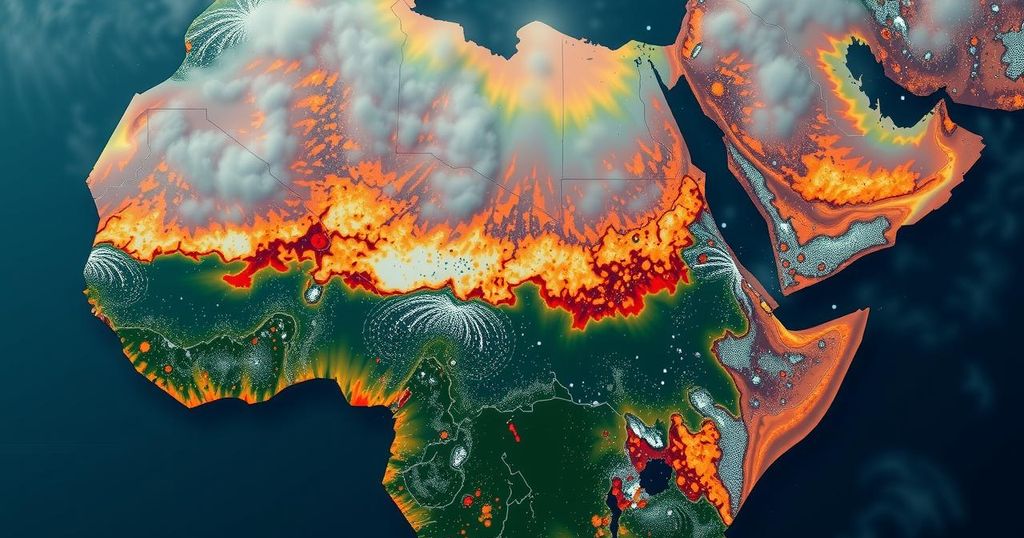Impact of Climate Change on Rainfall Patterns in Africa: A Study by WWA
A study by the World Weather Attribution (WWA) has linked extreme rainfall in Sudan, Nigeria, Niger, Cameroon, and Chad to anthropogenic climate change, resulting in severe flooding this rainy season. The rainfall intensity has increased due to global warming, claiming 2,000 lives and displacing millions. With future warming expected, such extreme weather events are predicted to become more frequent, posing grave risks to already vulnerable communities.
A recent study by the World Weather Attribution (WWA), released on October 23, 2024, highlights the grim impact of anthropogenic climate change on rainfall patterns in five African countries: Sudan, Nigeria, Niger, Cameroon, and Chad. The study attributes the extreme rainfall experienced this rainy season to global warming, which has intensified precipitation by approximately five to twenty percent across the Niger and Lake Chad basins during this period. The United Nations Office for the Coordination of Humanitarian Affairs (OCHA) reported that the catastrophic floods caused by these rainfall events have resulted in the deaths of an estimated 2,000 individuals and displaced millions more. Furthermore, the research indicates that intense rainfall episodes in Sudan have increased by roughly 18 percent over the last forty years, demonstrating a probable connection to climate change. The study warns that due to human-caused global warming, such extreme rainfall and flooding events are now common and are predicted to become even more frequent with continued temperature rises. As global temperatures approach a 2°C increase, the region must brace for more severe weather than experienced this year. The challenges presented by these climatic events are complex and compounded by various factors, such as ongoing conflicts, widespread displacement, deteriorating public health, acute food insecurity, and escalating living costs. Vulnerable populations, particularly internally displaced persons (IDPs), are facing significant risks as many struggle to access basic utilities and are more susceptible to flooding impacts. In West and Central Africa, recent floods have devastated essential infrastructure, leading to increased incidences of waterborne diseases. In Nigeria alone, cholera outbreaks attributed to these conditions have reportedly claimed over 350 lives. The WWA stresses that the persistent conflict and fragility in the region exacerbate poverty, rapid urbanization, and the deterioration of infrastructure. The findings of the study further emphasize that better management of water systems and bolstered early warning mechanisms are critical. The 2024 floods in Sudan have illuminated challenges in water governance, especially concerning shared water resources.
The ongoing climate crisis has resulted in extreme weather events, particularly in vulnerable regions such as Africa. This study specifically investigates the influence of anthropogenic climate change on rainfall patterns, emphasizing the increased intensity of rainfalls due to global warming. These findings are crucial for understanding the immediate humanitarian needs and long-term planning required for rehabilitation and infrastructure management in the affected countries.
In conclusion, the findings from the WWA underline the critical link between human-caused climate change and the increasing severity of extreme weather events in Africa. As global temperatures rise, the region must prepare for intensified rainfall and its associated challenges, particularly in areas grappling with existing humanitarian crises. The WWA calls for urgent action in managing water resources and improving infrastructure to mitigate the risks posed by future climatic events.
Original Source: www.downtoearth.org.in




Post Comment